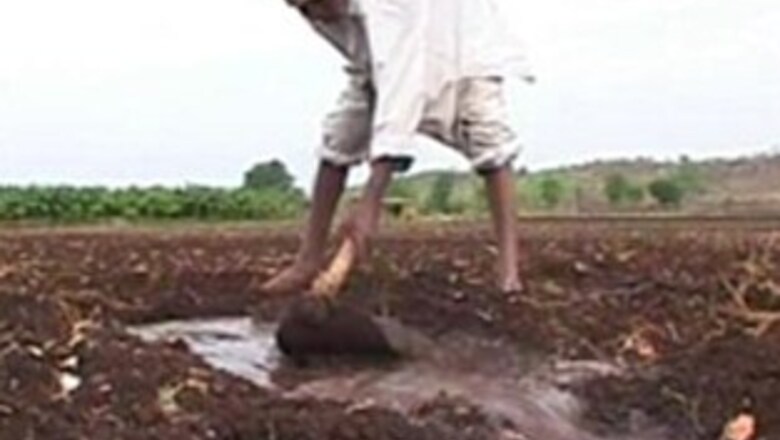
views
Beijing: India has enough grain stocks to ride out an expected poor harvest, but the failure of the monsoon adds to global uncertainty about food and grain stocks, the head of an agricultural think tank said on Wednesday.
India's monsoon rains have been 29 per cent below normal since the beginning of the June-September season, hurting crops such as rice and cane and triggering a sharp rise in food prices in India and sugar futures abroad.
For the time being, India has built up sufficient grains stocks, said Joachim von Braun, director general of the International Food Policy Research Institute, but warned that the uneven rainfall has raised concerns.
"If government food distribution systems and national markets operate well, there should not be any serious issue for increasing hunger," he said in Beijing.
"But it will draw down stocks and that will make the international market again more nervous. It is very difficult to rebuild stocks from the low levels we have."
IFPRI in April released a report that warned of a rush by wealthier nations afraid of food shortages to buy agricultural land, particularly in Africa.
It called for standards of transparency and ethics in the acquisitions, to avoid people being displaced from land or food being exported during a crisis.
The deal spree was triggered by a spike in agricultural prices in 2008, as high energy prices triggered greater interest in biofuel, that caused many countries, especially in Asia, to limit exports and build domestic reserves.
"It's systematic, it's there to stay, and it shouldn't surprise us. The undermining of trust in trade through the export bans of last year... has not been forgotten," he said.
"It was a huge failing of the world trading system."
IFPRI has tracked land deals and leases totalling 20 million to 25 million hectares, an area greater than France, von Braun estimated. Investors in overseas land include hedge funds, private entrepreneurs and state-backed corporations, as well as government-to-government deals.
Between one-third and one-half of the overseas land deals studied by IFPRI have been for the purpose of growing crops for biofuels, he said.




















Comments
0 comment